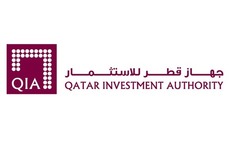
Profile: Kaizen Private Equity's Sandeep Aneja
As founder and managing director of Asia’s only education-focused GP, Sandeep Aneja has found that a career in private equity can be a much about finding questions as funding answers
Sandeep Aneja's passion for education began years before he set up education-focused GP Kaizen Private Equity. In the late 1980s, he was one of a handful of undergraduates admitted to the prestigious Jamalpur Gymkhana in Northern India, to train as a railway engineer.
The entry examination was rigorous, only one 10-20 students get in every year, but successful candidates were guaranteed a career. On top of that, the school provided room, board and a stipend of $80 per month. Not much by today's standards, but it was enough for Aneja to launch his first - philanthropic - educational venture.
"We used to get so much money; I had no idea what to do with it," he explains, "I could barely get through $25 a month in living expenses, so I had a lot of money left over. We used it to buy books and set up a literacy school for factory workers and their spouses."
Run in conjunction with the institute's director and some classmates, the school lasted just three years but over 400 students has passed through the program. The early experience left Aneja with ambitions beyond the railway. In 1992 he went abroad and studied for a masters degree in civil engineering at the University of Delaware.
Innovation central
This was the beginning of a 15-year stint in the US that included a postgraduate career in transportation, planning and logistics with the Federal Highways Administration. It didn't last long. After short spell in engineering consulting, a former employer convinced Aneja he was wasting his talents and advised him to take an MBA, so he moved to California and enrolled at Stanford Business School.
"When I got to Stanford, I saw innovation everywhere and I really liked the thinking and DNA of the people there," recalls Aneja. "To see the work that was being done in 1999 was exciting, the world really was going through an internet revolution."
That was enough for Aneja to decide to stick around, but with no background in technology whatsoever, he was at a disadvantage. Unwilling to wait for graduation, in his second year he leveraged his experience as consultant to land a position with a tech incubator.
"I was in the middle of Silicon Valley and everyone was talking tech, but I felt so out of place - I knew absolutely nothing about it," says Aneja. "The only way I could learn was to work full-time and go to school. My second year was hard work."
It was at the incubator that Aneja got his first senior role at a start-up: as director of business development and product marketing with Actionbase, an enterprise software solutions firm. It was another case of learning on the job - until that point he had not sold a thing in his life.
"I basically just grew with the company," says Aneja. "I learned how to get out there, sell a product, position the product and build partnerships that would enhance the quality of the product and the ecosystem."
When the time came to exit the business in 2002, Aneja's intention was to join another early-stage investor, work with handful of start-ups and then join a portfolio company he liked. He joined Series A specialist Outlook Ventures and ended up staying beyond the planned two years and becoming a partner. It was four-and-a-half years before he departed.
Aneja recalls that enterprise software and software-as-a-service (SaaS) was a prevalent investment theme at the time. Notable companies he was involved with included data back-up provider Lasso Logic, which generated a 3x return within six months, and ClairMail, a mobile payments solutions provider acquired by UK firm Monetise in 2012.
Finding a niche
By 2008 Aneja decided it was time to return to India. He explains that while the US VC industry had become saturated, many areas of India remained underserved and untapped. After 18 months in India, Aneja came upon the Kaizen concept. His inspiration was in part a result of his own experiences as a consumer.
"Education was one of the reasons I moved back, in fact a critical reason," he says. "While trying to find a good school for my children, I realized the opportunity there was in transforming education in India."
Aneja looked at other sectors - such as technology, wellness and food - but none of them provided a platform that was sufficiently differentiated. To build his team, Aneja chose focus on those with strong sector expertise over investment experience.
"A lot of the entrepreneurs were coming in and looking for sector knowledge from investors at the time and that is the team we put together," he says. "Many have a strong higher education background, and that network has given us access to other educationalists and entrepreneurs."
It was a first-time team and a first-time fund, with a country-specific, sector-specific mandate; a difficult fundraise was all but guaranteed. The Kaizen Education Fund I launched in May 2009 with a target of INR 4.82 billion ($100 million). It eventually ended up closing shy of its target at INR4 billion three years later.
Deal flow is another story. The first investment came in 2011, when Kaizen committed $7.5 million to distance education provider Universal Training Solutions (UTS). The GP has since made seven more, but Aneja says he is only scratching the surface. "The number of deals in education is vastly more than we expected - we have identified around 1,100 potential deals to date."
Now Kaizen is planning a follow-up vehicle: a $150 million pan-Asian education fund. Targeting jurisdictions such as Bangladesh, Sri Lanka, Singapore and the Philippines as well as India, Aneja is confident that even more opportunities are over the horizon. Investment is not a problem; the real challenge for Kaizen will be educating LPs.
Latest News
Asian GPs slow implementation of ESG policies - survey
Asia-based private equity firms are assigning more dedicated resources to environment, social, and governance (ESG) programmes, but policy changes have slowed in the past 12 months, in part due to concerns raised internally and by LPs, according to a...
Singapore fintech start-up LXA gets $10m seed round
New Enterprise Associates (NEA) has led a USD 10m seed round for Singapore’s LXA, a financial technology start-up launched by a former Asia senior executive at The Blackstone Group.
India's InCred announces $60m round, claims unicorn status
Indian non-bank lender InCred Financial Services said it has received INR 5bn (USD 60m) at a valuation of at least USD 1bn from unnamed investors including “a global private equity fund.”
Insight leads $50m round for Australia's Roller
Insight Partners has led a USD 50m round for Australia’s Roller, a venue management software provider specializing in family fun parks.







